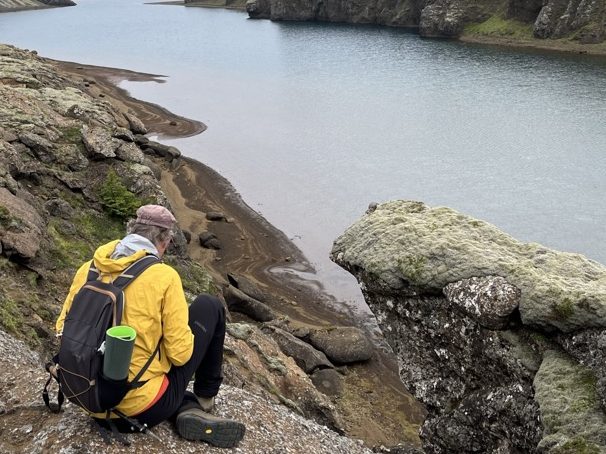Room Based Writing
At the start of a learning process, when starting to think about a specific topic, for example ‘light’ or ‘water’.
- Derived from Metro Writing, from Paris in the 1950s: Travelling in a metro, write every time the metro stops, stop writing when the metro continues moving.
- Not necessarily in a classroom, but walking, discussing and writing in an environment: outdoors, a bus, or other places.
- Starting from a topic: may be a very open or a very specific one
- A phenomenon like light, or something concrete like a chair
- The basic task: Free writing
- Writing continuously, even when stuck, until something new comes up
- Working spatially: listening, paying attention to oneself and one’s surroundings, describing things that are happening
- Timing the writing is important: about three minutes is a good time to start with
- Possible to give freedom of choice with timing: for example, when nothing new comes up, start moving again
- Giving some instructions about space:
- Find a tree to write under
- Wander around
- Jump on a bus, write there
- …
- Action-based instructions, for example: Walking around the space/place, write every time you:
- Walk past a light
- Smell something
- xxx
- (When the metro has stopped)
- After the writing portion, looking at one’s notes
- Highlighting keywords or sentences that feel meaningful
- Are there any surprises?
- What things do you notice that talk about the topic under consideration?
- Usually the writing is for personal viewing, not for showing others.
- Possible to continue with the group to work on something.
- Make drawings based on some of the observations in the writingWrite a storyMake movement
- Continue with other group tasks
- At the end of the learning process on the topic, doing the same exercise again with the same topic
- What has happened, what has changed?
- For the author, this reflection often involves making a simple book first, and writing into the book during the exercise.
Purpose:
- Digging into one’s own knowledge
- Connecting mind and body experience
- Allowing surprising things to come up and connect
- Not forcing, taking off the pressure to be smart or skilled
- Giving space for intuition
- Reflective point, not only on a cognitive level
Who with:
- For anyone interested in looking at their own interest or knowledge, to get fresh ideas on something
- May be adjusted for different ages
Variations:
- With school kids, may be done by writing just separate words, the same words may keep repeating until new ones come
- By drawing instead of writing
- With young children: by drawing, keeping the drawing timed
Author:
Gunndis Yr Finnbogadottir, Iceland University of the Arts, Reykjavik.

